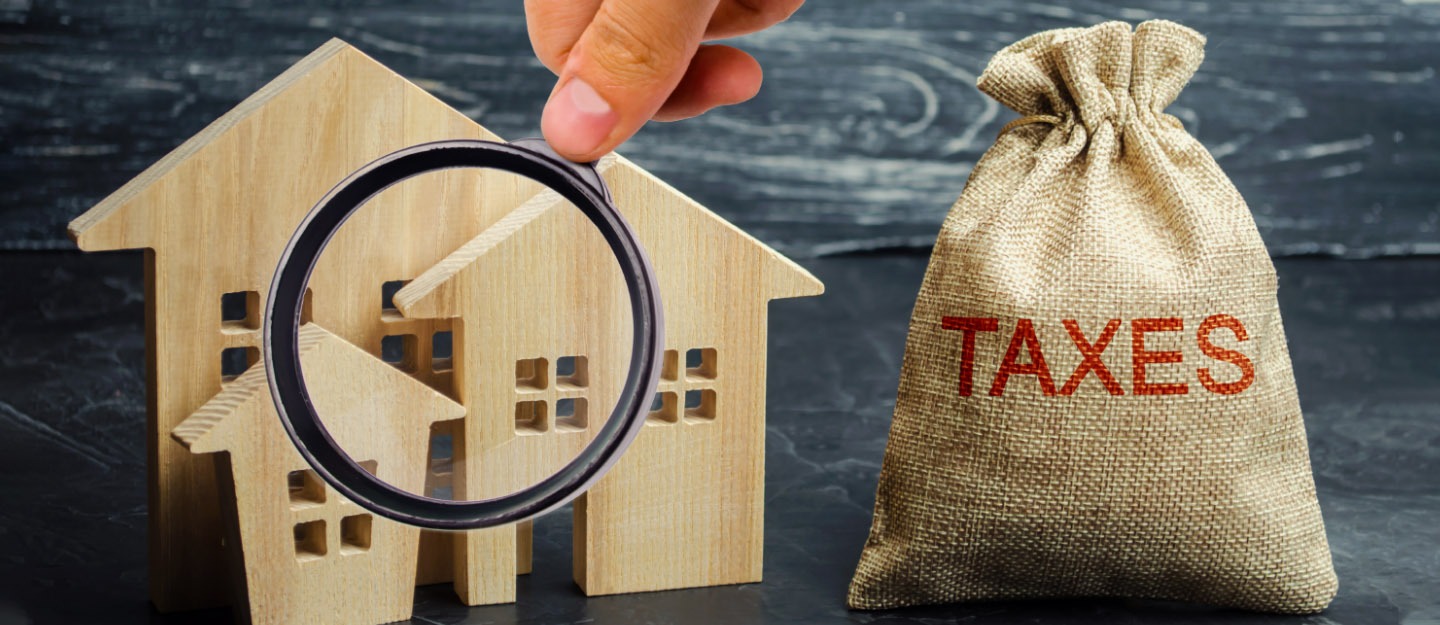Excise and Taxation Laws in Pakistan
As the new government is working towards making a better and prosperous Pakistan, it is stressing streamlining the taxation process. Do you know that paying taxes is imperative for every citizen?
It is our duty to be FBR filers and pay taxes on our properties. The taxes are different for different departments and the government changes and update its tax rates on an annual basis.
Continue reading to know more.
1. What is a Property Tax?
Property tax is the tax that a person has to pay while buying or selling his property. The amount is according to what the government has set and it includes sales tax also. Sales tax is paid when he is buying the property while he is liable to pay annual maintenance property tax also.
Where the new government has made changes in different sectors, it has made some changes in real estate also. Due to these changes, real estate is seeing new developments, both in terms of investment and property taxes in Pakistan.
With these changes, the government is encouraging investment in the real estate sector of the country. To make the process effortless and transparent, it has introduced an online property tax challan also. With this facility, people can pay the property challan directly and without any third person involvement.
2. What are the Types of Taxes??
In Pakistan, there are four types of taxes that the seller and buyer have to pay when making a property deal. These taxes include:
- Capital Value Tax
- Capital Gains Tax
- Withholding Tax
- Tax Duty
Though everyone knows that property tax is their responsibility, many of the investors try to steer clear of it by employing illegal means. Real estate is especially notorious for this kind of fraudulent and illegal means that people often use to earn more gain while keeping the tax at a lower level
To counter and minimize the situation, the government is working to tighten the excise and taxation laws pertaining to real estate and other forms of property. Federal Bureau of Revenue (FBR) collects all the information regarding your source of income, investments, and the ways you use and invest your money. In case of any discrepancy or miscalculation, they can even freeze your assets and penalize you with fines and imprisonment.
3. What are the New Property Excise and Taxation Policies?
Before involving any property matters, we suggest that you know how these property taxes work so that you can avoid any possible penalties and issues. The tax year is different than the usual January to December year and starts from July and ends in June of next year.
For example, the 2020 tax year started from the 1st of July, 2019 and it will end on the 30th of June, 2020. The government may change its policies every year and this change affects the overall developments.
3.1. What are the Updated Property Tax Values?
Different types of taxes are applicable to the buyers and sellers. If you are selling your property in Pakistan then the Capital Gains Tax is applicable to you. When you sell a property and gain a profit then that profit is taxable and you will need to pay the tax the sold property was purchased within the last three years.
If sold in the first year of the purchase, the tax will be 10%, when sold in the second year the rate goes down to 7.5%, and in the third year, it goes to 5%. In case the property is sold after more than three years, the seller will not have to pay any Capital Gains Tax.
When buying a property, the Capital Value Tax and Stamp Duty are applicable to the buyer. It is a provincial tax that the buyer pays when he is buying a property and the amount is according to the tax year values’ updates. As per the latest 2019-2020 property excise and taxation rate, the CVT (Capital Value Tax) and Stamp Duty payable value is 5% in case of the purchase of urban property.
The breakdown is, 2% CVT and 3% Stamp Duty. for those who do not know about Stamp Duty, it is the tax that is applicable on the legal property documents when making a property purchase.
Withholding tax, the third form of tax, is payable by both the buying and selling parties. It is a federal tax and both parties are liable to pay it at the time of making the property deal. It is an advance tax and for a filer, the rate of tax is 2% while for a non-filer, the rate goes up to 45%.
The tax is payable only when the price of the bought property exceeds 4 million. In the case of selling the property, the filer has to pay 1% tax while for a non-filer, the tax percentage will be 25%. These property excise and taxation values largely depend on the updates and latest policies of the government and change annually.
3.2. Applying for PT-1 Record
To apply and get the property records, you will need the following documents.
- A plain paper application, written from the registered property owner. The paper must contain the court’s legal and valid affixation.
- A copy of the applicant’s CNIC
- An up-to-date record of the proof of the payment
3.2.1. The Rate of Tax
As per the Act, the tax rate on the property is applied and collected on an annual basis. The rate is decided according to the annual value of the building and the area in which the property is located. On average, the tax rate is 5%, and the amount changes according to the price of the property.
3.3. What is the Procedure for Assessment of the Property?
The rate of tax depends on the nature of the property. This nature includes the type of building and the rates are different for residential and commercial properties. The annual value of the property is determined by the yardsticks and the tax rate is according to it.
3.3.1. Time and Mode of Payment
- The tax could be paid before or on the 30th of September with a 5 percent deduction of the present year, the year in which you are paying the tax
- The given time limit to pay the tax is 30 days that is counted from the day the notice was issued and must be accompanied by a challan form
- To pay the tax, choose from the Treasury of State Bank or any other mentioned National Bank of Pakistan branches
- You can pay the tax via a cheque, with a challan form, that has been signed in favor of the Excise and Taxation Officer of the concerned state or district
3.3.2. Abatement and Additional Charges
In case someone pays the tax amount before or on the 30th of September in the lump sum, then a 5% abatement is given. If the tax is not paid by the 30th of September then a surcharge rate of 1 percent is charged on the first day of each month.
3.4. What are Property Tax Notices?
The following are the property tax notices that are issued in different situations and cycles.
P.T - 10
It is a form of challan that includes the name of the property, the amount of the tax that is according to the current financial year’s tax rate, and the last date of the tax deposit. The tax should be deposited in any branch of the National Bank of Pakistan or the State Bank of Pakistan, in the provincial receipts department. The challan form has three parts; the duplicate part is sent to the E&T department and through treasury where all the tax details are recorded.
P.T. 11
In case the property owner is unable to submit the tax in due time, a penalty of an equal amount of tax is imposed on the owner. Through this, the property owner is given a chance of explaining the reason for the non-deposition of the tax. If he satisfies the concerned authorities successfully, he may be redeemed off the penalty.
P.T. 14
If the property owner does not pay the tax on time and the property is given on rent then the tenant could be made bound to deposit the monthly property rent in the Government Treasury until the owner pays and clears all the due tax liabilities. The respective challan is issued to the tenant of the property.
P.T. 13
In case the assessing authority ETO/AETO receives any information regarding the change in the possession, usage, ownership, and description of the property then the P.T. 13 challan is issued with updated tax details. In case the proposed details are preposterous, the property owner has a 14 day time period. If no objection is received in those 14 days then the proposed changes are considered valid.
3.5. Land Revenue Act of 1967
The Land Revenue Act of 1967 notice, under section 81, states:
“Whenever an assessee does not pay in time, the ETO with delegated powers of Assistant Collector Grade - I under Punjab Land Revenue Act, 1967 may issue a demand notice under Section 81 of the Act ibid. Upon receipt of this notice, the assessee should immediately contact the Excise & Taxation Officer because the next step will be warrants of arrest to the defaulter.”
3.6. Copy of P.T. 1
The register is the basic and main documents register that holds all the tax records. These records include the -property details like the description, the ownership, and possession, gross annual rental rate, and value. In case of any changes, those changes are also added to this register. In case a person is appealing for any details about the property, he will need to attach a copy of P.T. 1 that could be obtained on a plain paper application having a PKR.20/- court fee stamp.
Review the following document to get updated information on the recent tax charges and rates on different kinds of properties.
4. In What Cases Property Taxes are Exempted?
In case the property owners have any of the following cases, they are exempted from the property tax.
- A residential property having an area of fewer than 5 marlas.
- A residential or commercial property that cannot command an annual rent of more than Rs. 4320.
- A single unit residential property that gains an annual rent of Rs. 6480 but is occupied by the owner for his personal residence.
- A residential property that is owned by an orphan and disabled individual and has an annual rental value of Rs. 12150.
- A government building.
- Religious places like Mosques and Churches are not liable to pay any property tax.
- Public places like parks, hospitals, playgrounds, and schools do not come in the taxable property list.
In case you are planning to buy any property or sell any of yours, you can calculate property tax value through the tax calculator introduced by the excise and taxation Punjab and Sindh. For more on property laws and the latest updates, head on to the Gharbaar blog.

Content












Join our growing community
Subscribers
Youtube
Twitter
Instagram
Facebook